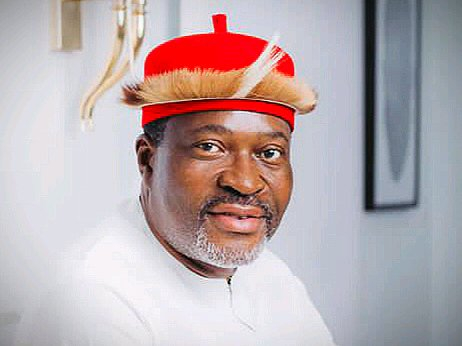Kanayo O. Kanayo has joined prominent figures in Nigeria’s entertainment industry to strongly oppose the government’s recent decision to impose restrictions on content in films, music videos, and skits.
The renowned actor criticized the move, calling it “arrant nonsense” and questioning the rationale behind the Minister of Arts, Culture, and Creative Economy, Barrister Hannatu Musa Musawa’s support for such limitations on filmmakers.
Veteran musician Mike Okri also expressed his scepticism about the government’s motives, suggesting that the ban could be an attempt to stifle the film industry.
“Whoever is behind this from the FG is joking. It’s a way to silence the movie industry. They should focus on the real challenges facing the country,” Okri snapped. He urged authorities to prioritize addressing more pressing national concerns.
The federal government, represented by the Executive Director/CEO of the National Film and Video Censors Board (NFVCB), Dr. Shaibu Husseini, recently announced a ban on the portrayal and endorsement of money rituals and the promotion of tobacco products in entertainment content, citing Section 65 of the NFVCB Act 2004.
This announcement was made during a National Stakeholders Engagement on Smoke-Free Nollywood event held in Enugu State in collaboration with Corporate Accountability and Public Participation Africa (CAPPA).
Dr. Husseini emphasized the importance of the film industry’s progress and the necessity for entertainment media to refrain from promoting harmful behaviours and substances.
He concluded by stressing the urgent need for decisive and collective action to preserve the industry’s integrity and the welfare of society.
The entertainment industry’s reaction has been one of concern and frustration. Industry leaders argue that these restrictions could hinder creative freedom and expression, which are vital for the growth and dynamism of Nollywood, one of the largest film industries in the world.
Kanayo O. Kanayo’s and Mike Okri’s criticisms reflect a broader sentiment within the industry that the government should focus on resolving more critical national issues rather than imposing restrictive measures on creative content.
They contend that the focus should be on improving the conditions under which filmmakers and musicians work, such as providing better infrastructure, funding, and support for the arts.


